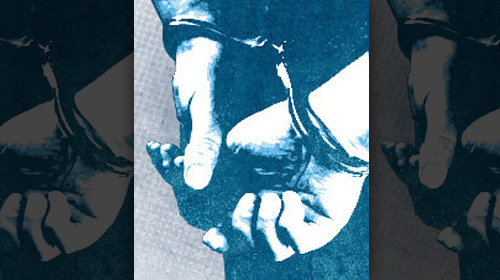
U.S. Drug Czar Gil Kerlikowske has his work cut out for him. A revealing recent interview suggests he favors a more treatment-based approach to drug policy than his predecessors, but he has no illusions about the daunting task of de-stigmatizing addiction and aligning America’s drug policies with the extensive evidence that a public health approach will serve our country far better than the failed War on Drugs. It’s great that the national discussion about drug use and addiction is changing course, even among high-powered folks like Kerlikowske, but our laws and practices have many miles to go to catch up with the trends in conversation. Fifty percent of our federal prisoners – and almost 20 percent of state prisoners – are incarcerated for drug offenses. And this isn’t just cracking down on “hard” drugs - Marijuana arrests accounted for more than half of all drug arrests in 2010. All of this has a disproportionate and devastating impact on Black Americans, who are three times more likely to be arrested for a marijuana offense even though whites use marijuana at a higher rate. So the question is: can the Office of National Drug Control Policy (ONDCP) follow through on Kerlikowske’s newfound enlightenment?
As Kerlikowske notes in the interview when pressed about the distribution of resources, particularly of those allocated for recovery services, “the money sometimes lags behind the change in philosophy and the change in discussion.” While this forthright explanation certainly holds some truth, it is proving to be an unsatisfactory answer. The FY 2013 budget for the Office of National Drug Control reflects an increase in spending on treatment, but also includes a decrease in funds allocated for prevention and an increase for law enforcement. In other words, despite the ample evidence that treatment is the answer, and despite Kerlikowske’s willingness to admit that our status quo drug policy simply isn’t working, we’re actually increasing expenditures on strategies that have proven ineffective. While the minimal shift in spending on treatment is a positive development, it means little in the face of the billions that will continue to be spent on law enforcement.
Throughout his conversation with The Fix, Kerlikowske projects a refreshingly candid air of modesty about all that he has learned since President Obama appointed him in 2009, and the challenges that lay ahead. Kerlikowske admits that during his tenure as the Seattle Police Chief he had no idea about the real perils of addiction, and that prior to his appointment as Drug Czar he hadn’t considered alternatives to law enforcement as a viable approach to drug policy. In other words, he is navigating a whole new world, and he is only one of many stakeholders in the process of embracing this ideological shift.
The Obama administration’s rhetoric surrounding drug policy is a significant departure from the “Just Say No,” tough-on-crime extremist campaigns we’ve grown accustomed to since the dawn of the War on Drugs. With an increased emphasis on the public health aspects of drug use and addiction, the administration’s tone appears to have shifted toward a more useful, evidence-based approach. We hope this won’t prove to be just more talk, rather than a comprehensive and action-packed change of course. Our prisons and jails remain packed to the brim, largely with nonviolent drug offenders who pose no threat to public safety.
When we talk about change, it is important to take a long-term view. Systemic change doesn’t happen overnight. But the baby-steps timidly taken by the ONDCP, even coupled with attractive language that appears to promote a new public health approach to drug use, are not enough. As the saying goes, talk is cheap. And in a time of economic stress, it’s not hard to see why the ONDCP might be hesitant to make a bolder investment in treatment. We hope that if elected for a second term, instead of clinging to the same antiquated approach that prioritizes law enforcement over public health, Obama will follow through on his proposed plans to put an end to the Drug War.
Learn more about drug law reform: Sign up for breaking news alerts, follow us on Twitter, and like us on Facebook.
